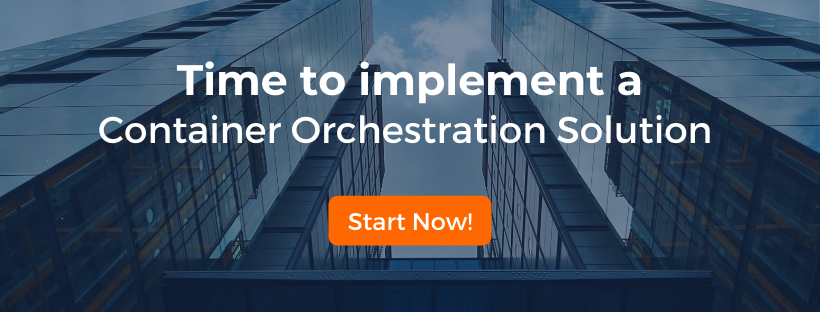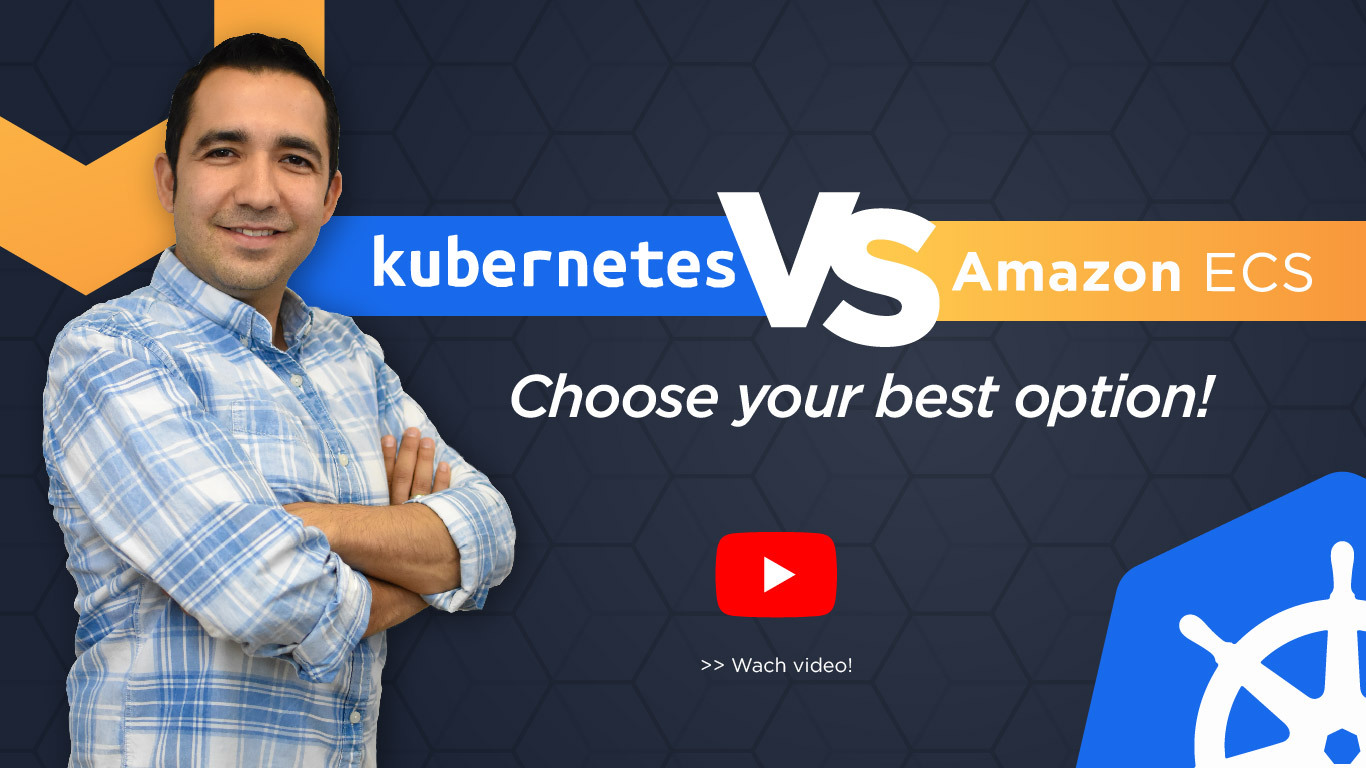As you may know, there are many container orchestration tools to manage and scale micro-services. But, in this case, we are going to talk about the two biggest mechanisms: Kubernetes vs Amazon ECS.
In this blog, we will review each of them individually. We’re going to talk about their pros and cons. In the end, we’ll decide which one is the right container orchestration tool for your web application, depending on your company’s needs.
Let’s start!
Kubernetes vs Amazon ECS: Which would win? These two are cluster management systems that help microservice applications manage, deploy, autoscale, and network among containers.
On one side, Kubernetes is a container orchestration service. Developed by Google and hosted in the Cloud, this service also uses Docker to function. It is relevant to highlight that Kubernetes has an important community.
On the other hand, Amazon ECS is a container orchestration tool that enables applications to scale up. Continuously, it creates more containers in order to run the application processes as the demand increases.
Both tools have positive and negative sides when adopting one of them, hence the importance of reviewing them to make a good choice depending on what you are looking for in your business.
Watch this short video to discover more about Amazon ECS!
Even with Kubernetes in the Cloud, for example (Azure Kubernetes Service or Amazon Kubernetes service), it will take you around 20% more time to manage it in full.
Regarding Amazon ECS, which is a service that doesn’t have a cost, except for the costs associated with the instance that is assigned to the service, similarly, it can be as little as a small instance.
Features: Kubernetes vs Amazon ECS
Kubernetes vs Amazon ECS: Multi-cloud
Well, this is obvious, and the winner is Kubernetes. A compelling reason is that it can be deployed on-prem or any cloud provider, including Azure, Google Cloud, or Amazon.
In the case of ECS, the platform is closed code; as a consequence, it has a vendor lock-in and is not cloud-agnostic.
Kubernetes vs Amazon ECS: Easy to operate
In this case, Amazon ECS is your best option. The ECS ecosystem is already preconfigured. Actually, it is an Amazon service that doesn’t require a full setup. Additionally, it takes the most challenging parts so that you can focus on a few configurations.
Alternatively, Kubernetes has an intense configuration process, and it requires an appropriate amount of hours to make it work.
Kubernetes vs Docker: The most influential open source projects.
Kubernetes vs Amazon ECS: Availability and scalability
Both platforms cover the features at the same level, but clearly, Amazon ECS has benefits inherently. They can be deployed in different availability zones VS Kubernetes on-prem. This will take you a fair amount of time to replicate similar approach with multi-region/zones, etc..
Kubernetes vs Amazon ECS: Deployments
With Amazon ECS, the native deployment system is rolling updates. As well as the other deployment strategies. For example Canary and blue-green deployments. They can be incorporated in your CI-CD process, but with the reinforcement of Amazon Code deployment.
On the other hand, Kubernetes per se doesn’t have multiple deployment systems, such as rolling updates, canary deployments, etc. BUT except for blue/green deployments, that frankly, works flawlessly with Kubernetes.
Read the blog: Which one to choose: OpenShift vs Kubernetes?
Kubernetes vs Amazon ECS: Costs
Organizations aspire to reduce IT costs without compromising quality or agility, right?. So, Kubernetes usually is more expensive than Amazon ECS. One strong argument from Kubernetes, is that it requires at least two servers. And that, will cost you a good amount of money from the hosting side.
And not just that, if we go deeper into your organization, with Kubernetes on-prem, the likely work efforts are 2X. That’s because of its complexity in the configuration, deployment, and maintenance.
Insights from ClickIT followers
Here are some insights our followers share with us that can be helpful in this debate between Kubernetes vs. Amazon ECS.
- What’s the organization’s age: Startups with almost no DevOps/sre can rely on ECS, but organizations that have already pumped in a lot of resources and have a footprint across multiple Cloud Kubernetes is the best option.
- Cloud provider trap: Does the organization worry about cloud provider lock-in?
- Technology advancement: Choosing ECS will give you knowledge that is just limited to AWS. If azure GCP provides equivalent technologies, definitely the same configuration will not work, but with Kubernetes, it’s 99% the same across cloud providers + it makes your app portable.
- Availability of talent in the market: While choosing any technology, this is another factor that affects you. You need resources, and if you don’t find relevant folks who know the technology you are going to adopt, you should rethink the technology stack.
You can also find our blog on DZone
To conclude
Now that we had taken a closer look at each tool and we have made the comparison of Kubernetes vs Amazon ECS, the time has come to decide which container orchestration tool is your best option!
If you’re looking for Multi-cloud, Kubernetes is definitely the right choice, but if you’re looking to reduce IT labor and hosting costs and management, then you should opt for Amazon ECS!











